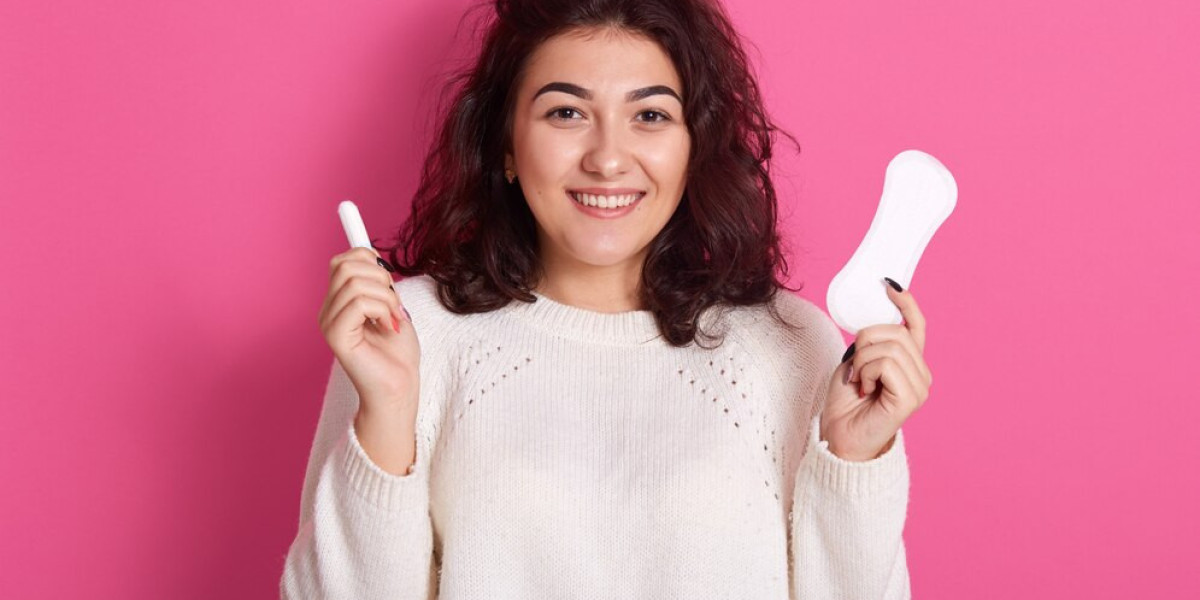Heavy menstrual bleeding, also known as menorrhagia, affects millions of women worldwide, causing significant discomfort and disruption to daily life. While it is a common condition, its impact on quality of life can be profound. Fortunately, medical advancements have led to the development of various breakthrough treatments for heavy periods that offer new hope for relief.
How Does Birth Control Pills Play a role?
Hormonal contraceptives are among the most commonly prescribed treatments for heavy periods. Birth control pills work by regulating menstrual cycles and reducing the amount of bleeding.
They contain synthetic forms of estrogen and progestin, which help to stabilize the uterine lining and reduce menstrual flow. For many women, this treatment not only alleviates heavy bleeding but also helps in managing associated symptoms such as PMS.
Hormone Replacement Therapy (HRT)
For women experiencing heavy periods due to perimenopause or menopause, Hormone Replacement Therapy may be an effective solution. HRT can balance hormonal fluctuations that contribute to menorrhagia.
This treatment typically involves a combination of estrogen and progestin and is tailored to the individual’s hormonal needs.
A note on Progestin-Only Treatments
Progestin-only treatments, including oral progestin tablets, hormonal intrauterine devices (IUDs), and implantable progestin devices, can effectively reduce menstrual bleeding. These treatments work by thinning the uterine lining and decreasing the volume of menstrual flow. The hormonal IUD, such as the Mirena, is particularly effective and provides long-term relief.
What are some medical procedures for Heavy Periods?
Endometrial Ablation
Endometrial ablation is a minimally invasive procedure that involves destroying the uterine lining to reduce or stop menstrual bleeding. The procedure can be performed using various techniques, including radiofrequency, laser, or cryoablation.
This treatment is generally recommended for women who do not wish to preserve their fertility and seek a significant reduction in menstrual flow.
Uterine Fibroid Embolization (UFE)
For women whose heavy bleeding is caused by fibroids, Uterine Fibroid Embolization offers a targeted approach. UFE involves injecting small particles into the blood vessels supplying the fibroids, causing them to shrink and die. This procedure can significantly reduce bleeding and alleviate symptoms associated with fibroids.
What is the connection between pads for heavy bleeders and Treatments for Heavy Periods?
Pads for heavy bleeders and treatments for heavy periods are both related to managing heavy menstrual flow, but they address different aspects of the issue.
These pads for heavy bleeders are specially designed menstrual pads intended to provide greater absorbency and protection for individuals who experience heavy menstrual bleeding. They are often larger and thicker than regular pads, and may feature extra layers or a higher capacity to prevent leaks and ensure comfort during periods of heavy flow.
Treatments for Heavy Periods refer to medical and lifestyle interventions aimed at reducing the severity of heavy menstrual bleeding. Treatments can include hormonal therapies (like birth control pills or hormone-releasing devices), medications to reduce bleeding, and procedures such as endometrial ablation or uterine artery embolization. The goal is to address the underlying causes of heavy bleeding and improve quality of life.
What are some Alternative and Complementary Therapies?
Some women find relief from heavy periods through herbal remedies and supplements. Herbs such as dandelion root, ginger, and cinnamon have been traditionally used to support menstrual health and reduce bleeding.
However, it is essential to consult with a healthcare provider before starting any herbal treatments, as they may interact with other medications.
Acupuncture has been used in traditional Chinese medicine to address various gynecological issues, including heavy periods.
This technique involves inserting fine needles into specific points on the body to balance energy flow and promote overall wellness. Some studies suggest that acupuncture may help reduce menstrual bleeding and alleviate associated symptoms.
How Lifestyle Adjustments and Self-Care plays a role?
Maintaining a balanced diet rich in iron and essential nutrients can help manage the symptoms of heavy periods. Incorporating foods like leafy greens, lean proteins, and whole grains can support overall health and potentially reduce the severity of menstrual bleeding.
Stress can exacerbate menstrual symptoms, including heavy bleeding. Implementing stress management techniques such as meditation, yoga, and regular exercise can contribute to a more balanced menstrual cycle and improve overall well-being.
Engaging in regular physical activity can help regulate hormonal levels and improve blood circulation, which may positively impact menstrual flow. Moderate exercises like walking, swimming, or cycling can be beneficial in managing heavy periods.
Personalized Medicine
The future of treating heavy periods is increasingly moving towards personalized medicine, which tailors treatment based on individual genetic, hormonal, and lifestyle profiles.
Advances in genomics and biomarkers are paving the way for more customized approaches, allowing for treatments that are specifically designed to meet each patient's unique needs. This personalized approach aims to improve efficacy and minimize side effects, offering more targeted solutions for managing heavy menstrual bleeding.
What are some Innovative Drug Therapies?
Research is underway to develop novel drug therapies that can more effectively control heavy bleeding with fewer side effects. New medications, such as antifibrinolytics and selective estrogen receptor modulators, are being investigated for their potential to reduce menstrual flow while preserving fertility and overall health. These emerging drugs offer promising alternatives for women who do not respond well to traditional treatments.
What are the Advances in Minimally Invasive Surgery?
Minimally invasive surgical techniques continue to advance, providing less invasive options for treating heavy periods with quicker recovery times. Innovations such as robot-assisted surgeries and new endometrial ablation technologies are enhancing precision and reducing complications. These advancements offer improved outcomes for women seeking surgical interventions for heavy menstrual bleeding.
Conclusion
Heavy menstrual bleeding can significantly impact a woman’s daily life, but with the advancements in treatments for heavy periods, there are numerous effective options available. From hormonal therapies and medical procedures to lifestyle adjustments and emerging treatments, women now have a diverse array of choices to manage their symptoms.







